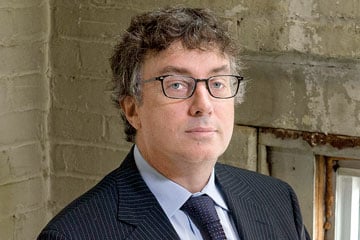
Pro Bono Ontario says the Law Society of Ontario is considering funding to sustain Pro Bono Ontario’s Law Help Centres, which are set to close Dec. 14.

Pro Bono Ontario says the Law Society of Ontario is considering funding to sustain Pro Bono Ontario’s Law Help Centres, which are set to close Dec. 14.
The Law Society of Ontario requested five years of detailed financial and program information from Pro Bono Ontario, which was submitted earlier this week, says executive director Lynn Burns.
The goal is for Pro Bono Ontario to raise $250,000 from the private bar and receive a match from the LSO for the remaining $250,000, Burns wrote in an emailed statement. So far, Pro Bono Ontario has been successful in raising the $250,000 in private donations.
The Law Help Centres are located in two courthouses in Toronto and one in Ottawa and aim to connect volunteer lawyers with litigants who may not be able to afford a lawyer or may be self-represented.
Earlier this month, Pro Bono Ontario said the centres would close due to lack of funding and that it would take $500,000 to sustain the centres into 2019.
An LSO funding influx would be a change from Pro Bono Ontario’s situation earlier this month, when the law society said that there were no plans to alter its $50,000 annual contribution to Pro Bono Ontario as the law society had not received a request for additional funding. As of mid-day on Nov. 22, LSO senior communications advisor Susan Tonkin confirmed that the law society had been in touch with Pro Bono Ontario, but she did not provide further updates.
The law society’s board, Convocation, has its next public meeting on Nov. 30.
Burns says the law help centres are prepared for an orderly wind-down by year end if Pro Bono Ontario does not raise the needed funds.
“Given the fact that nobody wants to see the centres close, we are cautiously optimistic about the outcome,” Burns says.
The Toronto Lawyers Association provided $35,000 to Pro Bono Ontario, after doing a “deep dive” into financial statements for due diligence at a Nov. 21 meeting, according to president Dirk Derstine of Derstine Penman and Associates.
The donation, a one-time stopgap to help the centres stay afloat and find sustainable funding, was inspired in part by conversations with judges who said the centres were helpful for self-represented litigants who otherwise would take up court resources, says Derstine.
Raj Sharda, a bencher who practises at Sharda Law Office in Brampton, Ont., says he would support a contribution from the LSO to Pro Bono Ontario matching the funds that PBO has raised from private donors.
“My sense is that it might be prudent to match just this once and then put it before the membership — put it on the ballot and let the members decide,” he says.
Rocco Galati, a bencher and Toronto-based constitutional lawyer and sole practitioner, says he is advocating a minimum contribution of $25 per year from members of the profession to meet the needs of Pro Bono Ontario. Separately, Galati says, the provincial and federal governments also have a role to play in promoting access to justice through legal aid funding.
“I think the law society should take the government to task on legal aid” to improve funding, Galati says.
Clients in 2017: 25,412
Revenue: $1.65 million
Expenses: $1.6 million
Law Foundation of Ontario grant: $800,000
PBO’s revenue from Legal Aid Ontario: $300,0000
PBO’s revenue from London Children’s Health Foundation: $75,195
PBO’s revenue from Law Society of Ontario: $50,000
PBO’s revenue from SickKids Foundation: $42,391
Donations and fundraising revenue: $161,669
Salaries and benefits expenses: $1.1 million
Rent in 2017: $131,060
Free legal advice hotline: $130,025
Office and general expenses: $67,976
Lease commitment for 2018 to 2021: $353,796
Source: 2017 Financial Statement